Less popular than their American counterparts, you'll find the most beautiful national parks to visit in Canada!
Less popular, because less known than their American counterparts, Canada's major national parks, which will be free in 2017 Yet there are unbelievable hidden treasures. Weakened over the years by a capricious nature and extreme temperatures, Canada is richly equipped for those who love outdoor activities. In kayaking, walking, cycling, on a boat or by car, we offer a spectacular discovery of 10 must-see national parks in Canada .
Parc National des Mille-Iles
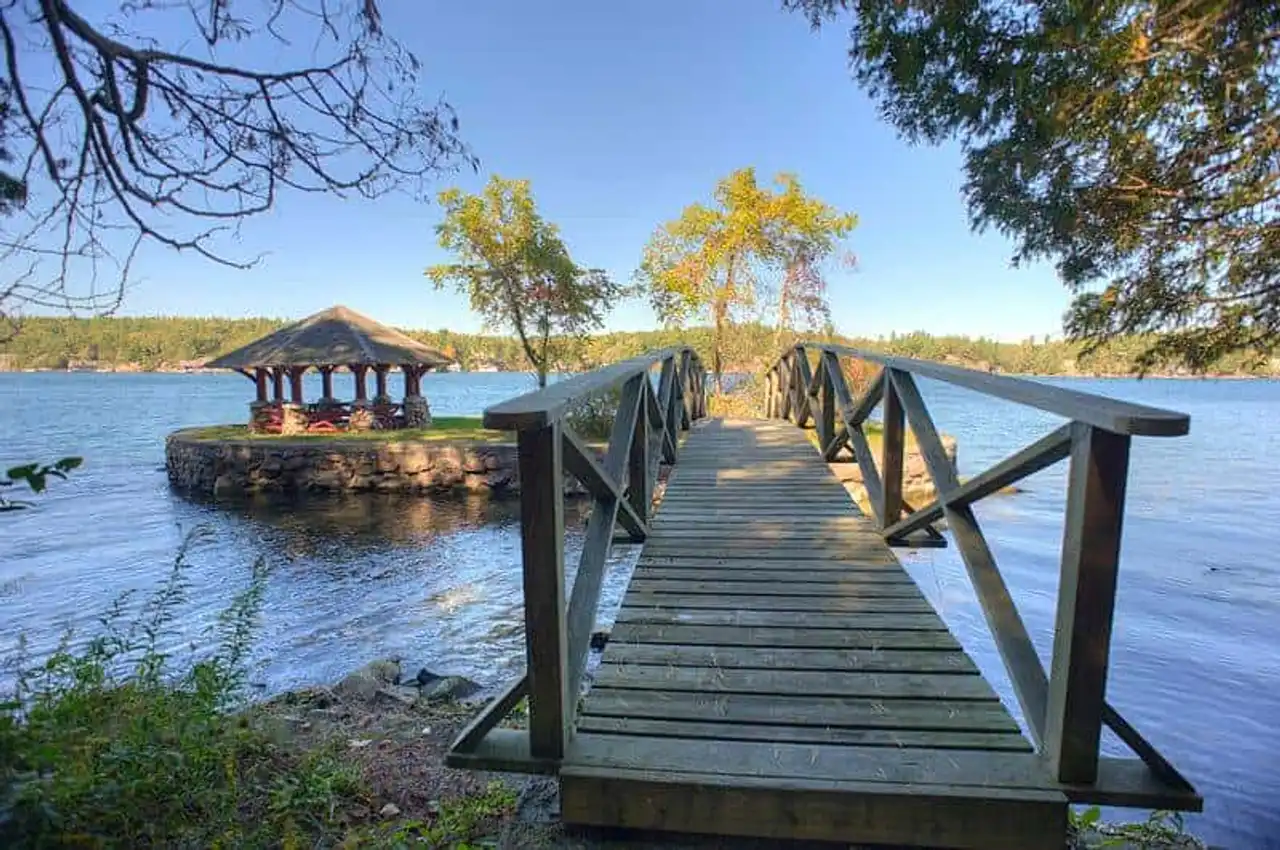
Photo credit: Wikimedia – Shroha
Located on the Saint Laurent River, in Ontario , the park of the 1000 islands is a wild, natural and ecological refuge that welcomes many tourists in the summer. Of the 1865 islands, about 20 are integral parts of the park, the others forming for most private areas where luxury homes cohabit small wooden chalets. It is possible to make camping, hiking and many discoveries, but the best way to get there will be kayaking, for the most athletic.
Pacific Rim Nature Reserve
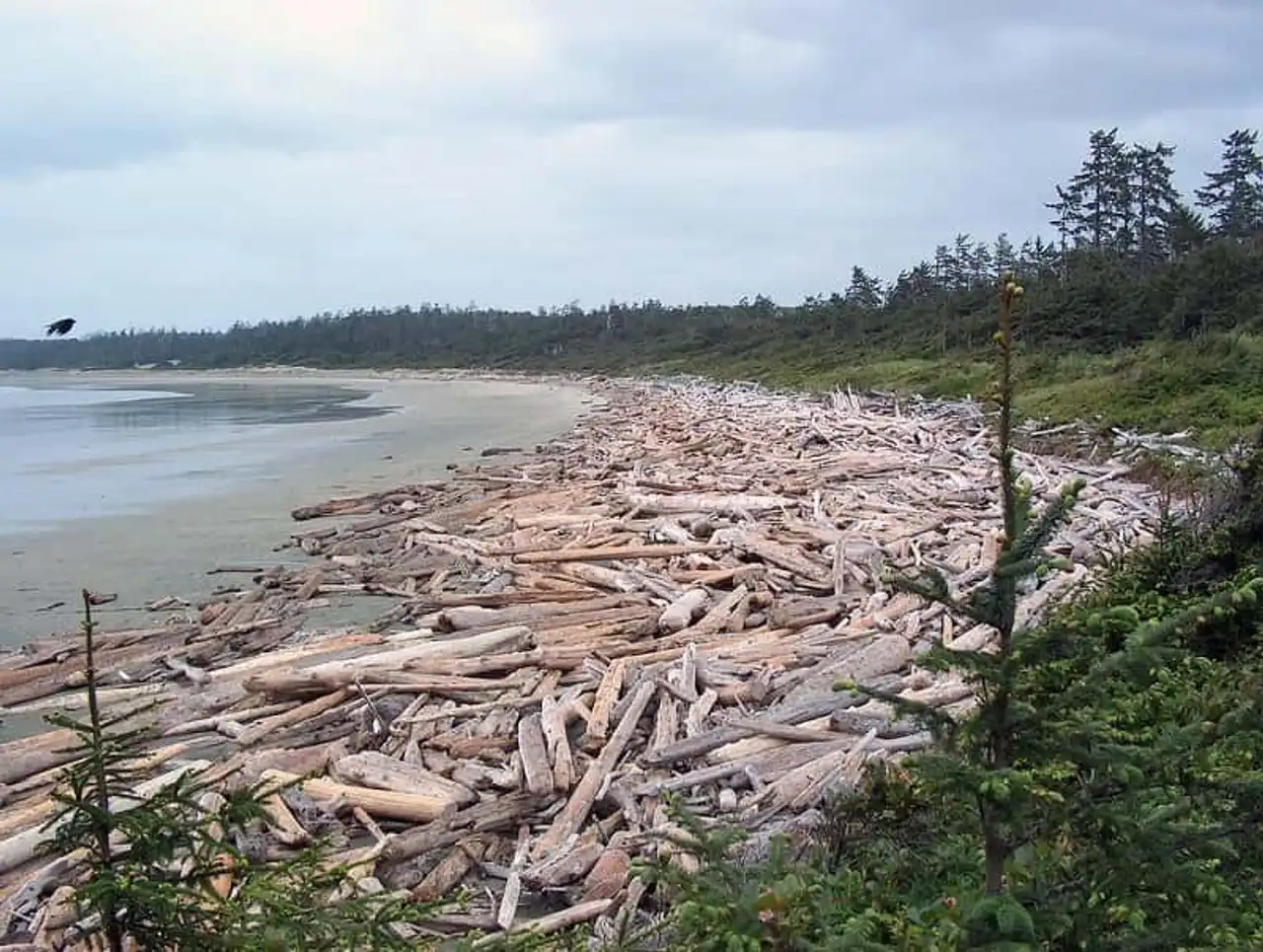
Photo credit: Flickr – Pascal
On the west coast, about 50 kilometers Vancouver , this nature reserve is an ecological paradise, known for its tropical forests and its coastline, which includes Long Beach, one of the best surf spots in Canada. The Broken Group archipelago is integrated into the park with its wild island rosary and the West Coast Trail, a 75-kilometre long hiking trail!
Banff National Park
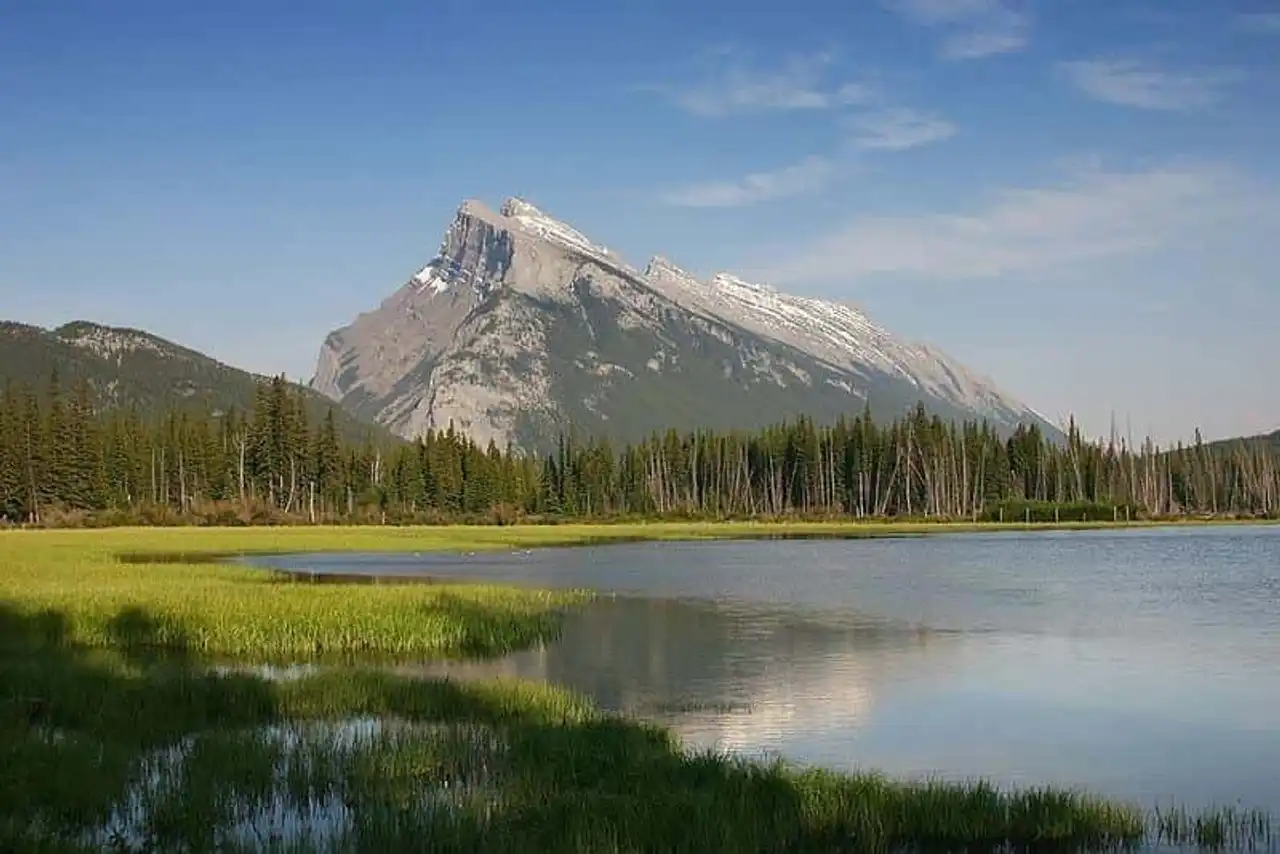
Photo credit: Wikimedia – Takakkaw
Probably the best known of all, the famous Banff Park is the symbol of the immense beauty of the Canadian rocky mountains. With its turquoise lakes, snow-covered mountains and forests, it is a pure space of incredible nature that offers to walkers, campers, cyclists and canoe enthusiasts.
Auyuittuq National Park
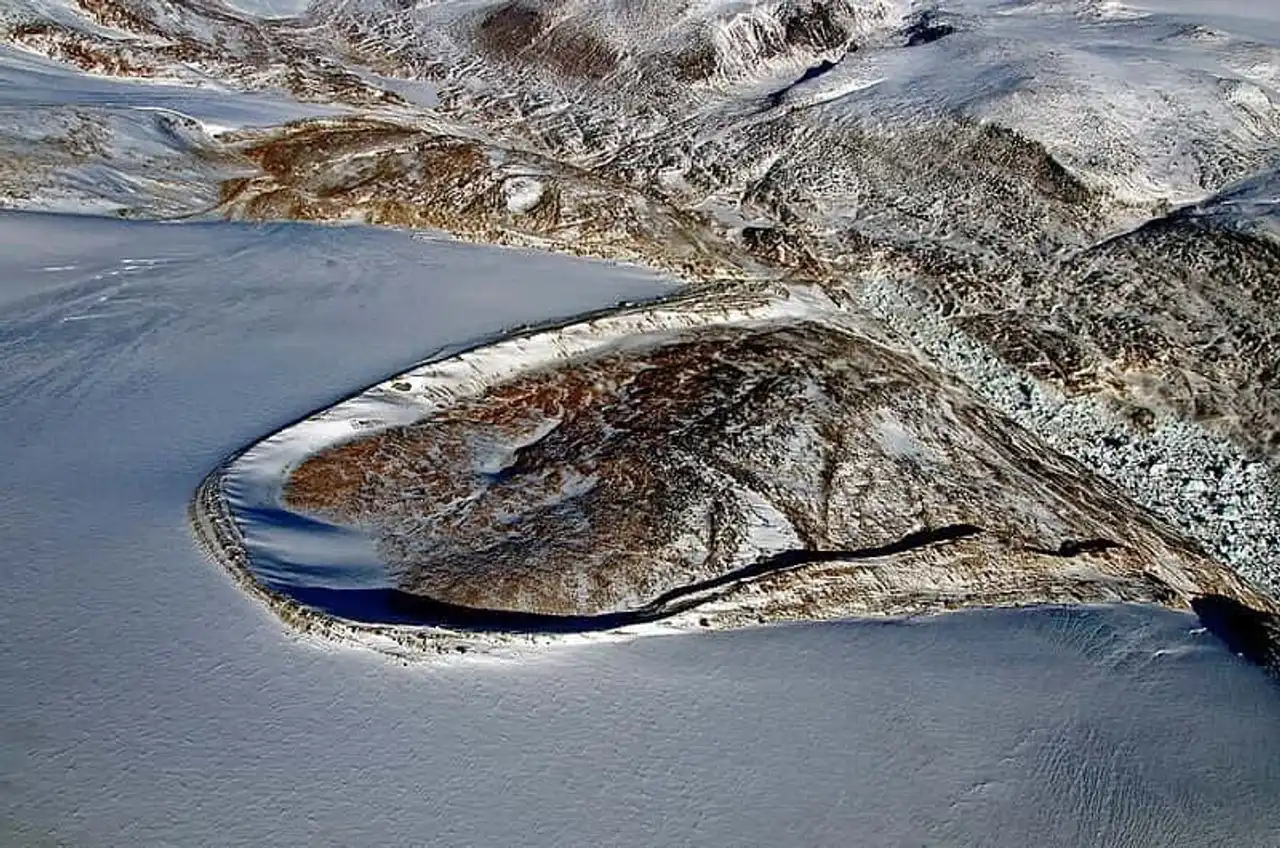
Photo credit: Wikimedia – NASA / Michael Studinger
A park at the edges of every civilization, isolated in the territory of Nunavut and composed of glaciers and fjords with glazing beauty. It is the only national park located inside the Arctic Polar Circle that has remained totally virgin. Wildlife and flora are still in the wild, and the only means of access are snowmobile or boat. Access is not the easiest, of course, but this park and these incredible landscapes deserve! A beautiful incursion in a place where you feel really far from everything.
Nahanni National Reserve
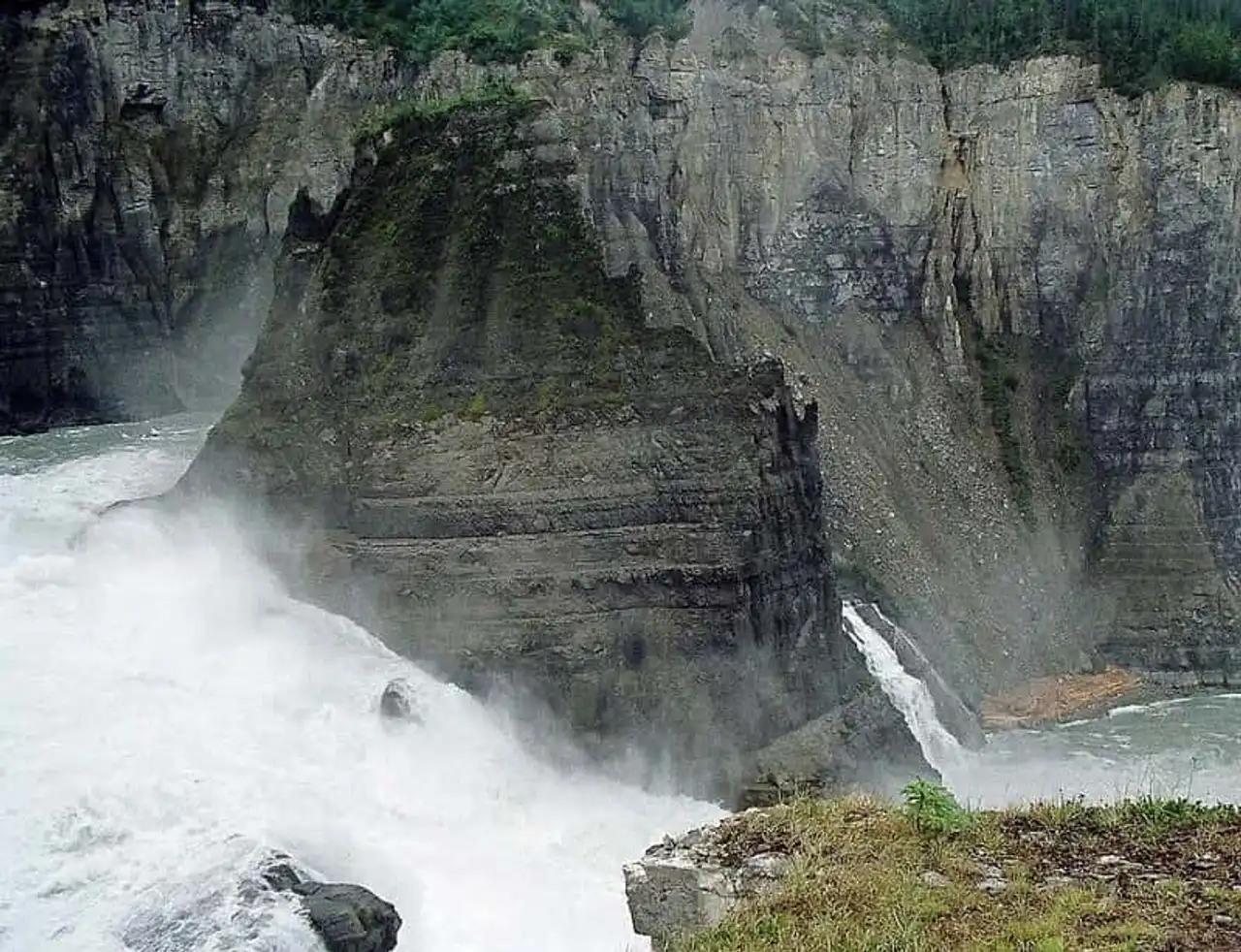
Photo credit: Flickr – Mike Beauregard
Located in the Northwest Territories, this majestic reserve is best known for its canyons carved by water and its dizzying waterfalls. The Virginia Fall, twice as high as Niagara Falls is one of the postcards to be seen. Paradise of kayakers and navigators in bright waters, this park offers strong emotions even for the most seasoned athletes. Hiking trails and other points of view happily occupy the most timid visitors. Access is only possible by helicopter or aircraft.
Prince Edward Island National Park
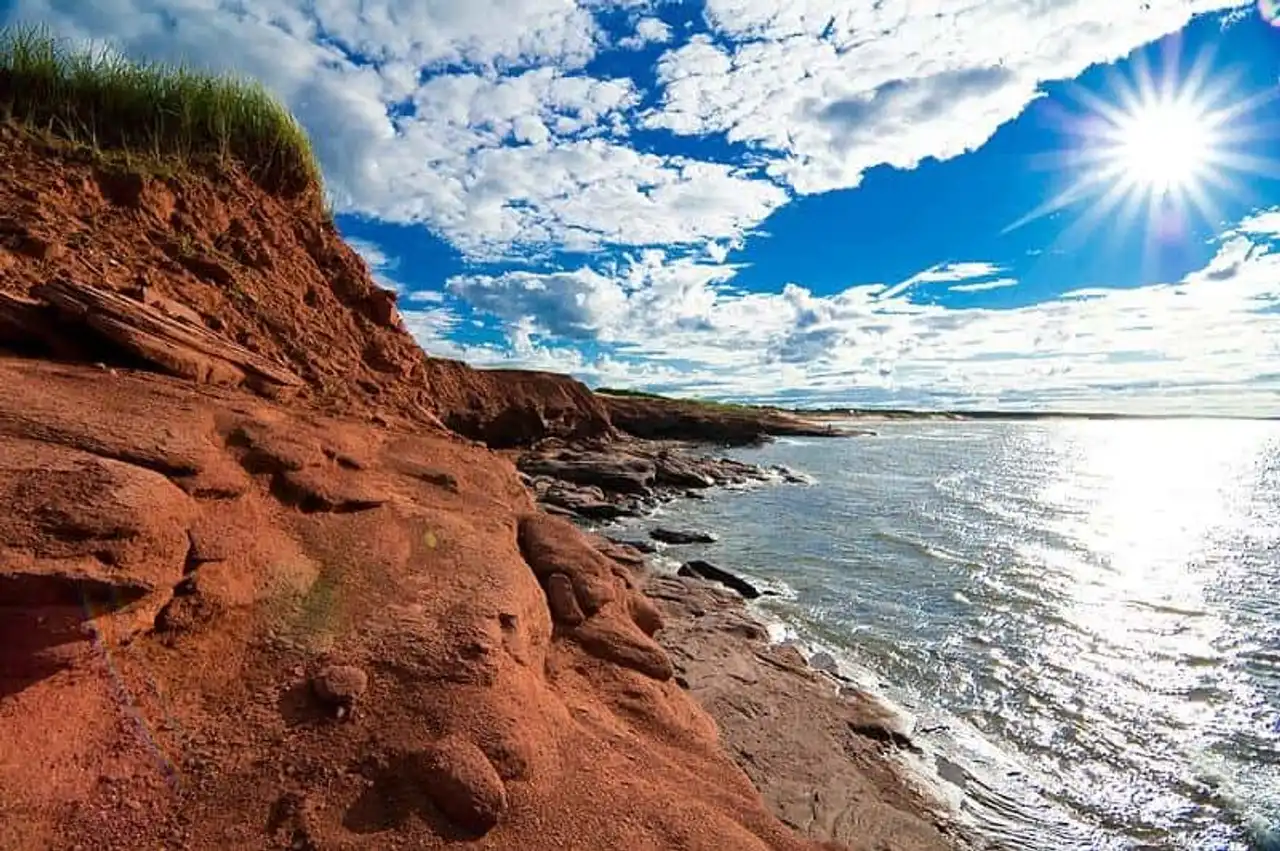
Photo credit: Wikimedia – Ryan Tir
Smaller, more accessible and more family-friendly, but also disappointing, this park offers visitors a nature composed of giant dunes, large cliffs and wild natural spaces. Located, as its name suggests, on the province of Prince Edward Island, it also has very beautiful white sand beaches inviting rest and relaxation.
Parc national des Hautes-Terres-du-Cap-Breton
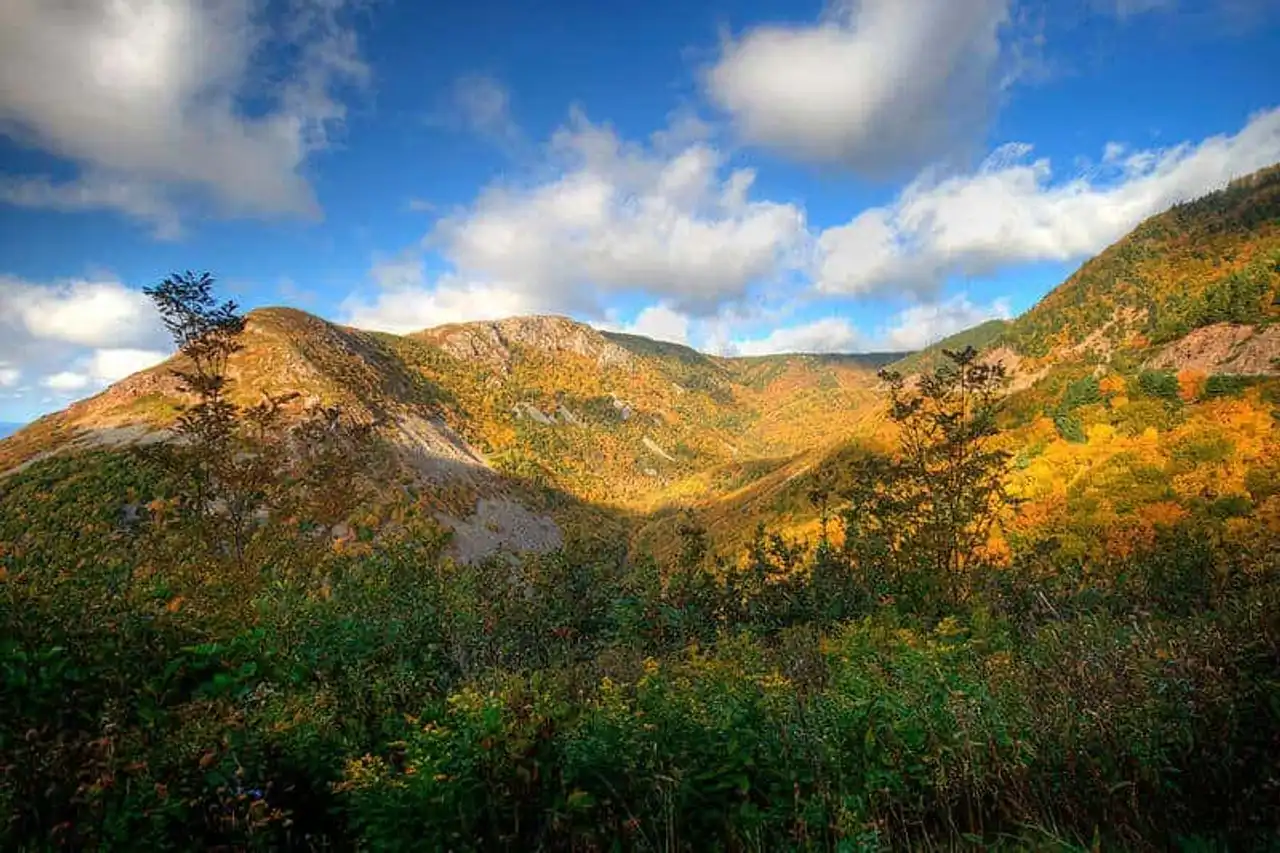
Photo credit: Wikimedia – glangille
Often designated by the place where the mountain meets the sea, this park in Nova Scotia is home to important cliffs that plunge into the ocean and canyons formed by rivers on a large forest-covered plateau. The Cabot Trail route passes through the park and is part of these legendary Canadian roads that must have been done at least once.
As in most parks, hiking trails are numerous, well maintained and offer a new perspective to enjoy this park. It is in the autumn that the colors are the most impressive, with these colors so typical of orange, yellow and red that tap nature.
Bruce Peninsula National Park
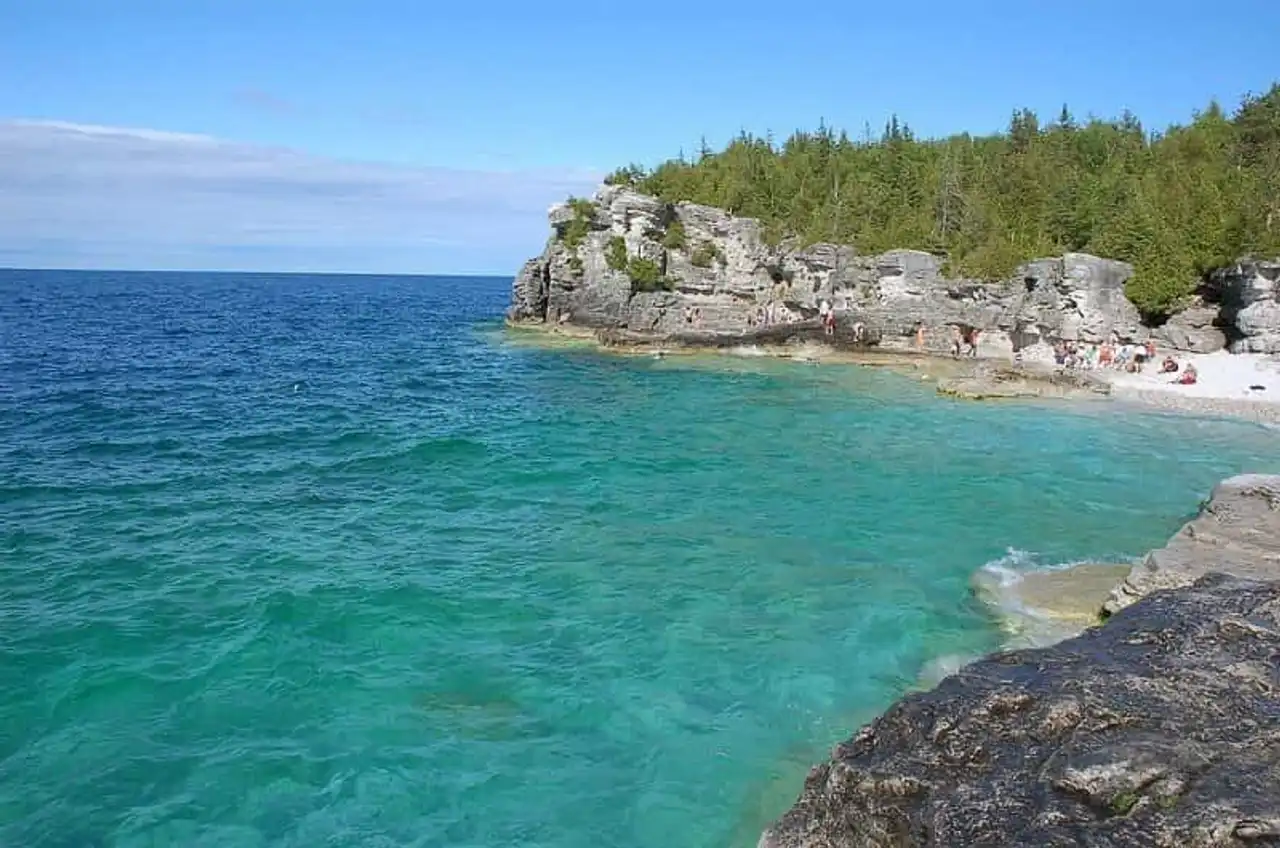
Photo credit: Flickr – Muhammad Ghouri
About four hours drive north Toronto , this park is known for its steep coast and crystalline turquoise waters. Between Georgian Bay and Lake Huron, this peninsula advances in the water and welcomes tourists and travelers around its beaches, caves and spectacular hiking path. Located right next to it, the Flowerpot Island and its large stone concretions in the shape of a flowerpot placed on the waterfront also invite you to discover. A fabulous natural mix between water, stone and easy access forest by car.
Gros-Morne National Park
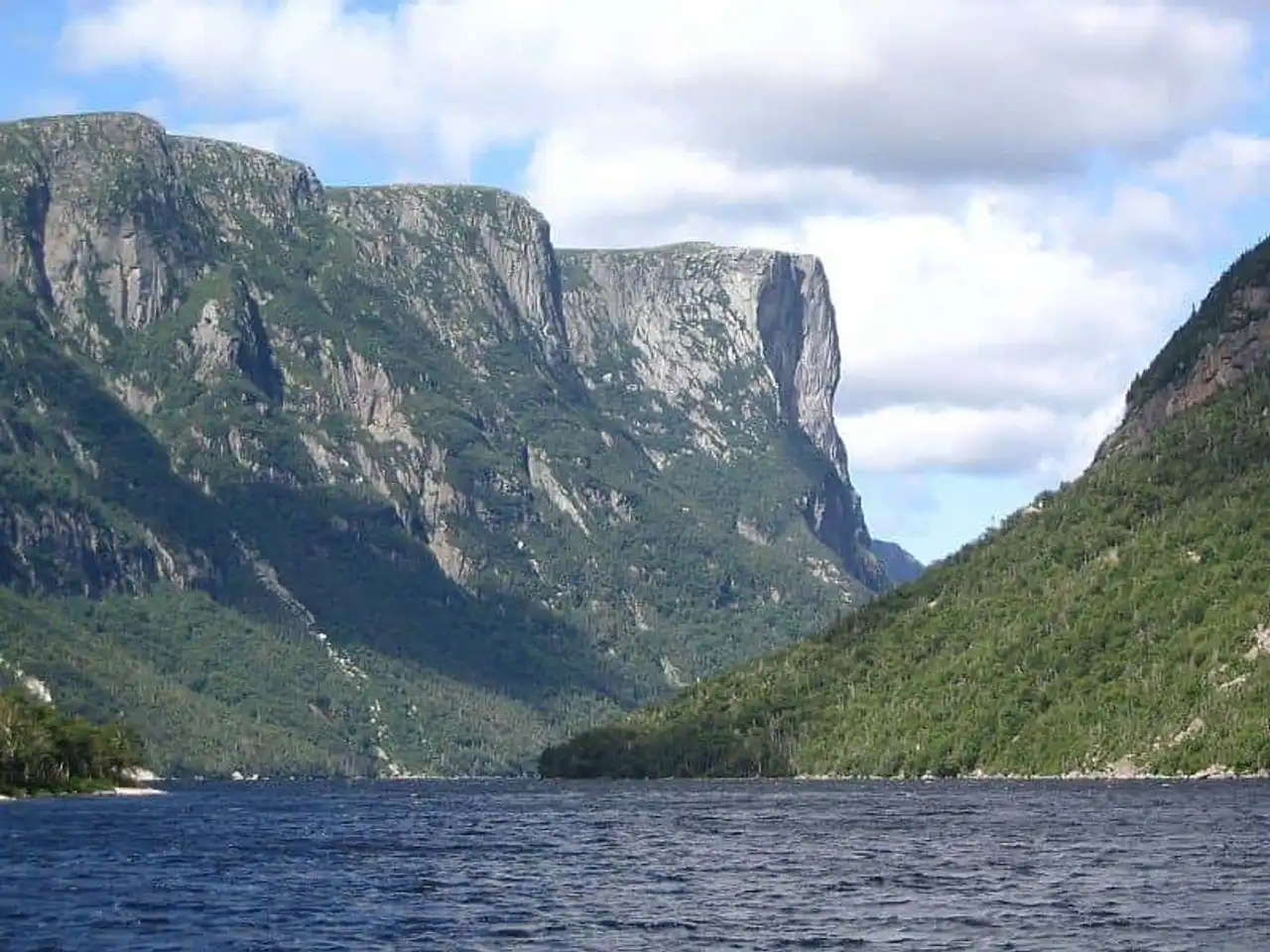
Photo credit: Wikimedia - Aconcagua
On the island of Newfoundland, this park is named after the second highest peak of the island, which peaks at 806 metres above sea level. Over a hundred kilometers of hiking trails are accessible through a wild and uninhabited nature. From the sea, you can admire the cliffs and fjords carved by time and glaciers that open a new striking perspective. Fishing, swimming, kayaking, camping for one or more nights can also be practiced and, in winter, cross-country skiing or snowmobiling. Guaranteed change!
Fundy National Park
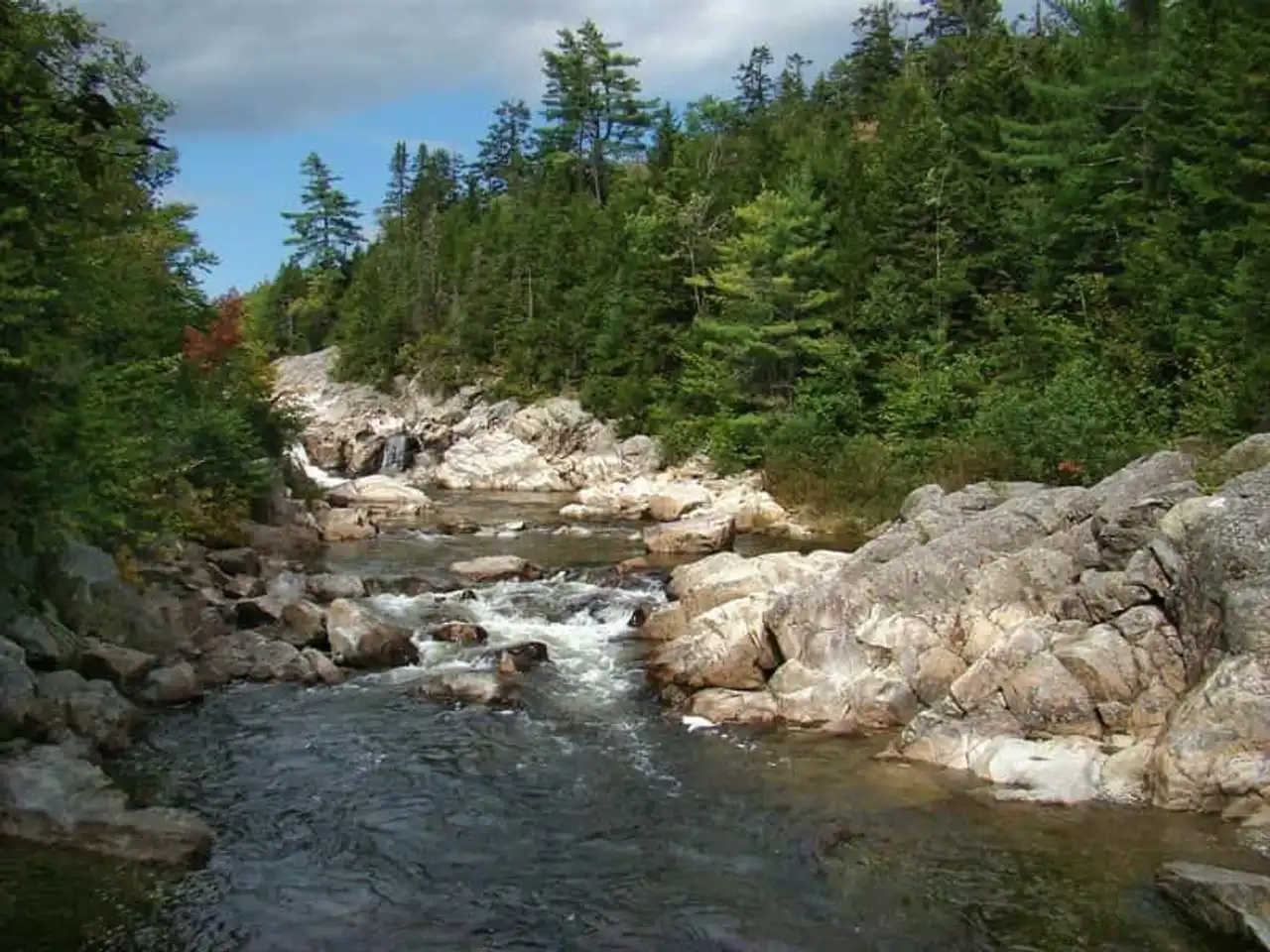
Photo credit: Wikimedia - Tango7174
On the east coast, in the province of New Brunswick, this park is divided into two large parts: on the one hand, a rough and abrupt coast where you can come to admire the highest tides in the world, and on the other, a multi ravines forest tray. It is one of the few parks where, in addition to traditional tents, you can stay in a yurt for one night in the middle of nature. Its soft slope beaches, natural ancestors and cliffs make up a beautiful visit for hikers and visitors.
Main photo credit: Wikimedia – Tobias Alt
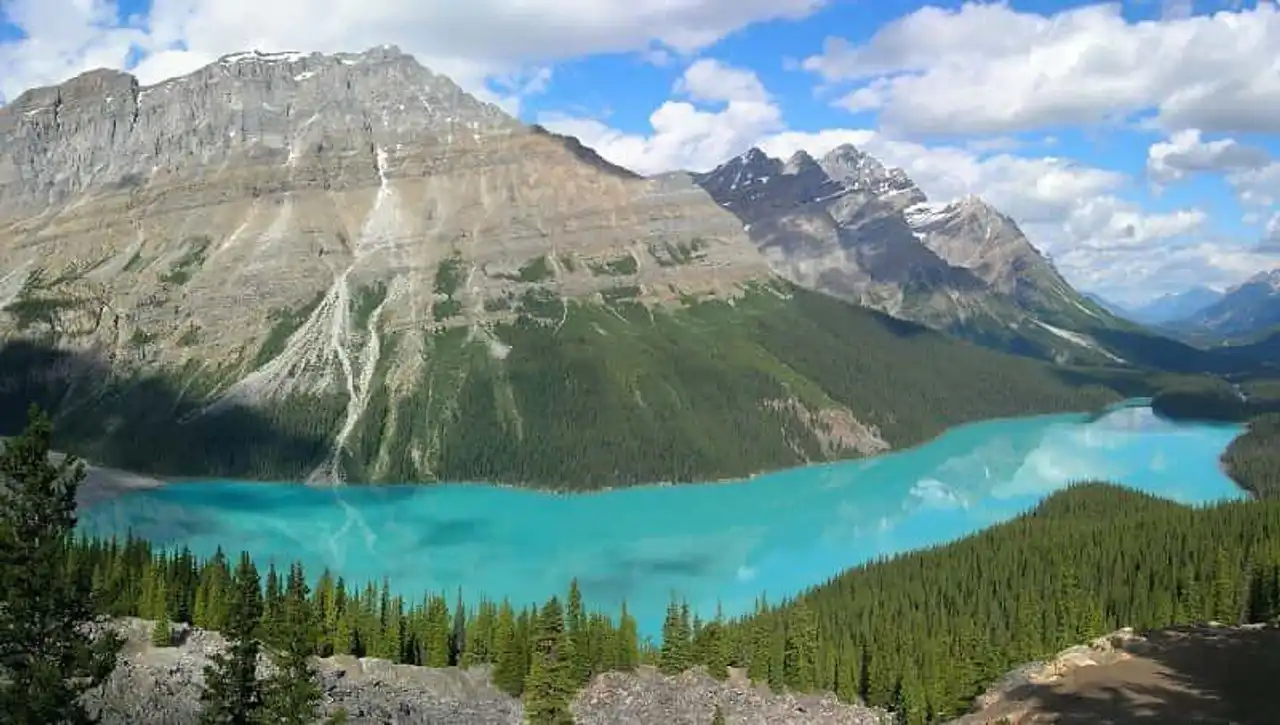






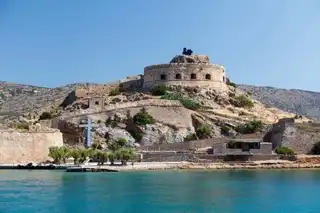
Loading comments ...